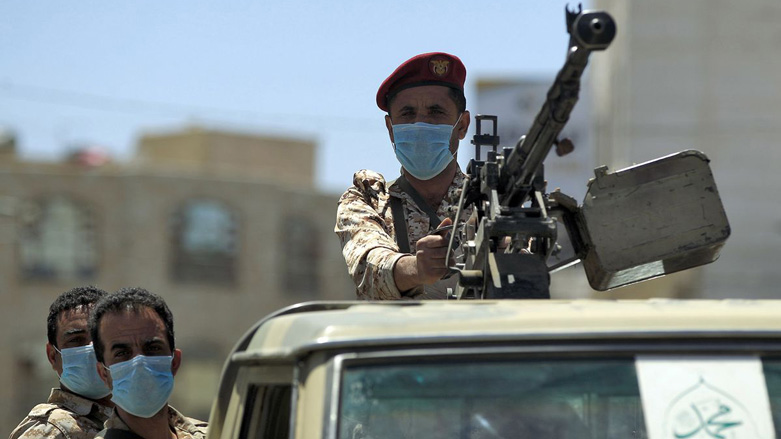US welcomes ceasefire declaration, as Riyadh confronts coronavirus in Yemen and at home

WASHINGTON DC (Kurdistan 24) – The US has welcomed a Saudi announcement declaring a two-week unilateral ceasefire in Yemen. The ceasefire declared by the Saudi-led coalition, which includes the UAE, as well as the internationally recognized Yemeni government, took effect on noon, local time on Thursday.
The Saudi-led coalition is fighting the Iranian-backed Houthis in Yemen, and the Houthis control most of the country. Their first response to the Saudi announcement was to reject the ceasefire.
Nonetheless, Secretary of State Mike Pompeo issued a statement on Thursday, welcoming the announcement of the Saudi-led coalition and urging the Houthis to accept it.
The US “commends Saudi King Salman and Prince Mohammed bin Salman for supporting this decision,” Pompeo said. “We urge the Houthis to respond in kind to the Coalition’s initiative.”
Last month, UN Secretary General Antonio Guterres called for a global ceasefire to allow war-torn areas of the world to receive international support to fight the coronavirus, and Pompeo described the Saudi initiative as “a constructive response” to Guterres’ appeal.
The Saudi military spokesman, Col. Turki al-Malki, in announcing the ceasefire, explained that the Coalition wanted to “create a conducive environment” for UN mediation in Yemen and “support the efforts towards combating the spread of the Covid-19 pandemic.”
Yemen has not reported any cases of the virus to date. But that, almost certainly, is due to the poor health infrastructure in the impoverished, war-torn country and a lack of testing.
Iran has been the epicenter of coronavirus in the Middle East, because of its close ties to China, where the disease originated. Iran has more reported cases (66,220) of the virus, and more deaths (4,110), than any other country in the region. Most likely, the Houthis’ close ties with Tehran have led to the spread of the disease in Yemen, particularly in areas they control.
Coronavirus strikes Saudi Royal Family
The Saudis, however, are also developing their own serious problem with the virus. In Saudi Arabia, the disease came not so much from Iran, as from Europe, which is now the world’s epicenter of the virus.
The governor of Riyadh, Prince Faisal bin Bandar bin Abdulaziz Al Saud, is now in intensive care, The New York Times said, while “several dozen other members of the royal family” are also ill with the disease.
Officials at Riyadh’s King Faisal Specialist Hospital and Research Center, which provides medical care for the sprawling Saudi royal family, sent out a warning to senior doctors on Tuesday, stating, “Directives are to be ready for V.I.Ps from around the country,” the Times reported. “We don’t know how many cases we will get, but high alert.”
As many as 150 members of the royal family are believed to have been infected, according to the Times, and some 500 beds are being prepared at the King Faisal Hospital for treating the country’s elite.
So far, Saudi Arabia has reported 3,287 cases of Covid-19 and 44 deaths. But those relatively low numbers may well be due to a lack of testing.
Most cases in Saudi Arabia have occurred among non-Saudis, particularly those living in the “vast slums around Mecca and Medina,” the Times said, home to “hundreds of thousands” of people of African or Southeast Asian origin, the offspring of individuals who came on religious pilgrimage, overstayed their visas, and settled around the holy cities.
They now constitute “a permanent underclass with no legal status and limited access to health care.” However, recognizing the problem, King Salman ruled last week that the government would treat all foreigners with the virus, regardless of their legal status.
Saudi Arabia’s Health Minister, Tawfiq al-Rabiah, warned on Tuesday that over the next few weeks, the number of cases of coronavirus in the kingdom would rise significantly. He suggested that they would total somewhere between 10,000 and 200,000 cases.
The extreme range in the numbers given for anticipated coronavirus cases underscores the uncertainties surrounding the disease in Saudi Arabia, as elsewhere.
Editing by John J. Catherine
